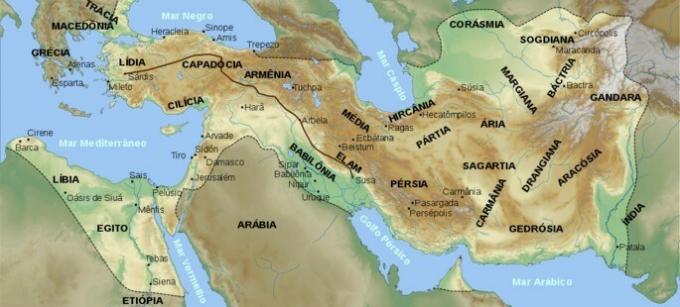The story of the foundation of Rome is linked to a mythological origin. According to more traditional legend, the two twin brothers, Romulus and Remus, participated in the foundation of the city after being abandoned in the river and saved by a wolf who nursed them, keeping them alive. But why were the twins abandoned in the river?
Romulus and Remus would be descendants of Aeneas, a warrior and noble Trojan, son of the goddess Venus and Anchises. Aeneas had left Troy after the city was destroyed by the Greeks in the aftermath of victory in the famous Trojan War. Wandering through the Adriatic Sea, Aeneas reached the region of Lazio, where years later Romulus would build Rome. Aeneas approached the local population, even managing to marry Lavinia, daughter of the Latin king. He founded the city of Alba Longa, starting to worship the gods he worshiped in his hometown.
The city grew, changing the lives of the people who lived in the Alba Longa region. The first king of the city was Ascanius, son of Aeneas, who generated a descendant in command of the city. After 12 generations, Romulus and Remus were born, the twin sons of Reia Silvia.
Reia Silvia, who was the daughter of Numitor, king of Alba Longa, was a vestal – the name given to the virgin priestesses of the goddess Venus. Rhea had become a Vestal by order of Amulius, Numitor's brother. Amulius' objective was to occupy the throne of the city of Alba Longa and, for this, he deposed Numitor, killed all his male children and made Rhea a vestal, so that she would not generate descendants. The aim was to prevent Rhea's children from competing with him for power in the city.
But Reia Silvia got pregnant, indicating that her father was the god Mars. Upon learning of the birth of the twins Romulus and Remus, Amulius ordered the children to be thrown into the Tiber River. However, the waters pushed the basket the children were in to the banks of the river. There, they were found by a wolf who nursed them, keeping them alive. As he passed by, a shepherd saw the children and took them to be raised in his village.
Romulus and Remus grew up as shepherds and hunters, becoming strong adults. During this period of his life, they were discovered by Amulius. The king managed to capture one of the brothers, Remo, after the two participated in a sporting event. Both Amulius and Romulus and Remus learned that they were descendants of Aeneas and had a right to the throne.
The twins also learned that they were Numitor's grandchildren. With knowledge of his origin and Amulius' action to become king, Romulus and Remus avenged their grandfather, deposing Amulius and placing Numitor on the throne.
But the twins did not stay in Alba Longa. They decided to found another city, in the place where they had been abandoned. They built walls, but they didn't know who would rule it, since, being twins, there wasn't one older than the other. To decide on this, each climbed one of the seven hills in the region – Remo, on the Aventino hill, and Rômulo, on the Palatino hill – to wait for an omen that would decide the dispute.
Remus received the first omen: six vultures. Romulus received his omen later: twelve vultures. Remo's supporters hailed him as king for being the first to receive the birds. Romulus' supporters also hailed him as king, as he had received a greater number of birds. But during the dispute that started, Romulus ended up killing Remus. With his brother's death, Romulus became the first king of the new city, which was named Rome in his honor.
With Romulus also began the period of the Monarchy in Rome. This story allows the reader to realize that in the myth of the origin of the city of Rome there is a strong connection with the Greek civilization, since Aeneas was part of the history of the Greeks. The legend explains how from the beginning Roman civilization sought to approach Greek civilization, sharing a common cultural origin.
By Tales Pinto
Master in History



